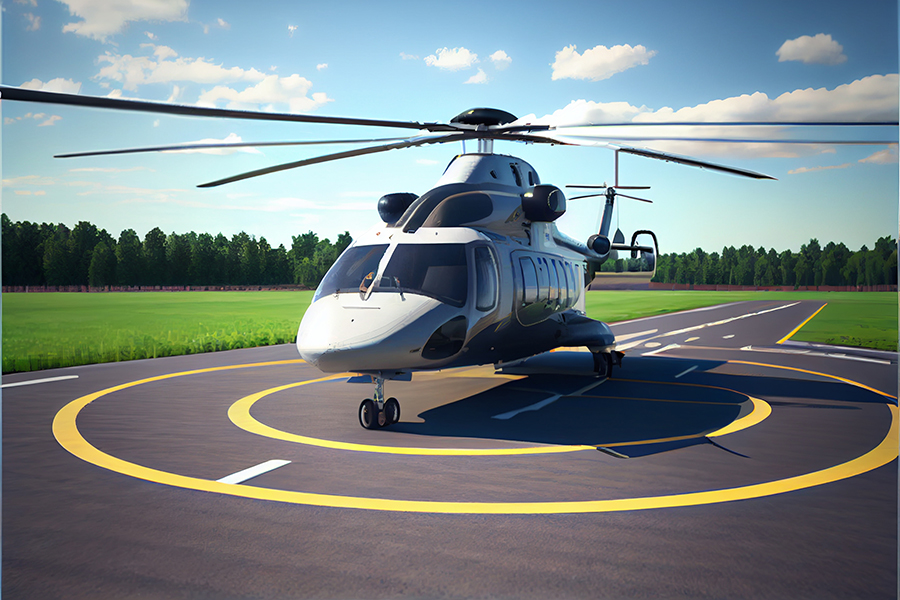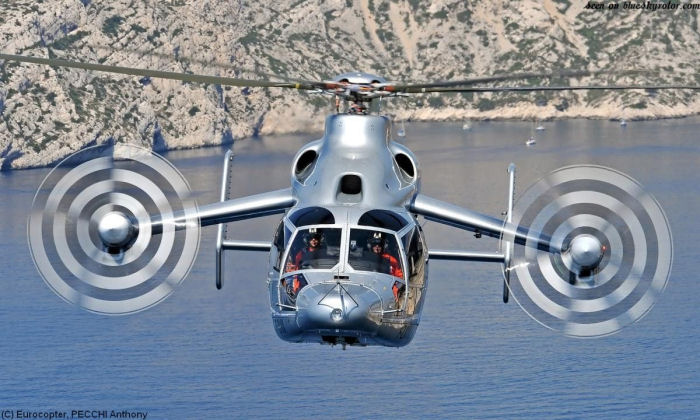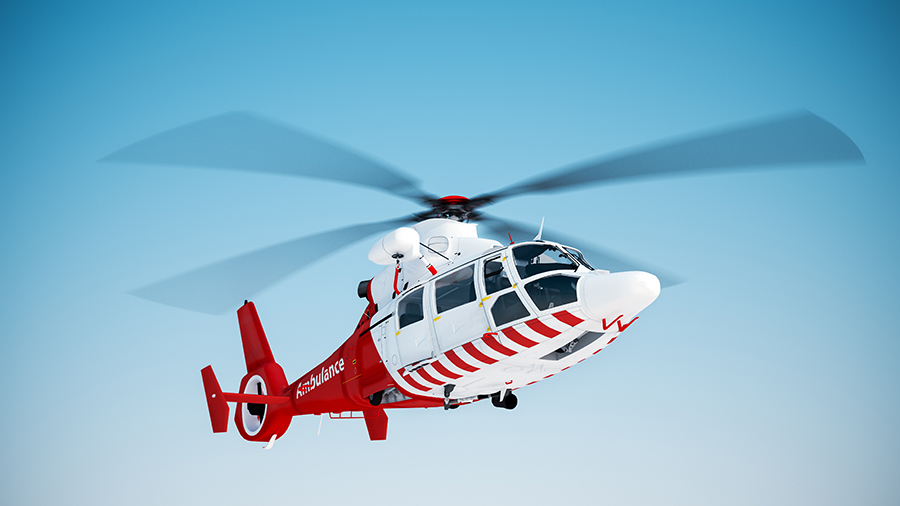Helicopters typically fly between 150 to 175 miles per hour. Some advanced models can reach speeds up to 250 miles per hour.
Helicopters offer unique advantages in aviation due to their vertical takeoff and landing capabilities. This makes them ideal for various applications, from medical emergencies to military missions. Their speed is influenced by factors such as design, engine power, and aerodynamics.
While most helicopters cruise at speeds between 150 to 175 miles per hour, advanced models push these limits further. Manufacturers continually innovate to enhance helicopter performance and efficiency. Understanding helicopter speeds helps in assessing their suitability for specific tasks and missions. Whether for rescue operations or transport, knowing their speed capabilities is crucial for effective deployment.

Credit: pilotinstitute.com
Helicopter Speed Basics
Helicopters are fascinating machines. They can hover, take off and land vertically. But how fast can they fly? This is a common question. Let’s dive into the basics of helicopter speed.
Factors Influencing Speed
Several factors influence how fast a helicopter can fly. Here are the main ones:
- Engine Power: More powerful engines can fly faster.
- Weight: Heavier helicopters fly slower due to more drag.
- Design: Aerodynamic designs reduce drag and increase speed.
- Weather: Wind and weather conditions affect speed.
- Altitude: Higher altitudes reduce engine performance, lowering speed.
Common Speed Ranges
Helicopter speeds vary by model and purpose. Here are some common speed ranges:
| Type | Average Speed (mph) | Maximum Speed (mph) |
|---|---|---|
| Light Utility Helicopter | 100-130 | 150 |
| Attack Helicopter | 150-180 | 200 |
| Transport Helicopter | 130-160 | 170 |
| Experimental Helicopter | 200+ | 250+ |
These speeds give a good idea of how fast helicopters can travel. Each helicopter type has a specific role and design, influencing its speed.
Types Of Helicopters
Helicopters come in different types, each serving unique purposes. These types can broadly be classified into civilian and military helicopters. Each category has various models with distinct features and capabilities.
Civilian Helicopters
Civilian helicopters are used for various non-military purposes. These can include search and rescue, medical transport, and aerial photography. They are generally built for comfort and efficiency.
- Light Utility Helicopters: These are small, versatile, and cost-effective. They are often used for private transport and news reporting.
- Medium Utility Helicopters: These offer more capacity and range. They are used for corporate travel and emergency medical services.
- Heavy-Lift Helicopters: These are designed to carry heavy loads. They are used in construction and cargo transport.
Military Helicopters
Military helicopters are designed for combat and support roles. They are built to be robust and versatile.
| Type | Function |
|---|---|
| Attack Helicopters | These are used for offensive operations. They are equipped with weapons. |
| Transport Helicopters | These are used to move troops and supplies. They have large carrying capacities. |
| Reconnaissance Helicopters | These are used for surveillance missions. They gather intelligence. |
Fastest Helicopters
Helicopters are known for their versatility and maneuverability. Some models achieve remarkable speeds. The fastest helicopters showcase cutting-edge technology. Let’s explore these speed marvels.
Record-breaking Models
Several helicopters have set impressive speed records. Here are some noteworthy models:
| Helicopter Model | Top Speed (mph) |
|---|---|
| Sikorsky X2 | 299 |
| Eurocopter X3 | 293 |
| Westland Lynx | 249 |
Sikorsky X2 holds the record for the fastest helicopter. It reached a speed of 299 mph. Eurocopter X3 follows closely with a speed of 293 mph. Westland Lynx is another top contender at 249 mph.
Technological Innovations
Advanced technologies make these speeds possible. Here are some key innovations:
- Coaxial Rotors: Reduce drag and increase stability.
- Compound Design: Combines rotor and fixed-wing elements.
- Fly-by-Wire Systems: Enhance control and responsiveness.
Coaxial rotors help in achieving greater speeds. They provide stability and reduce drag. Compound design merges rotor and fixed-wing features. This combination boosts speed and efficiency. Fly-by-wire systems improve control. They make helicopters more responsive and easier to handle.

Credit: www.helis.com
Comparing Helicopters And Airplanes
Helicopters and airplanes are both vital in aviation. Each serves unique purposes. Understanding their differences helps in choosing the right mode of transportation.
Speed Differences
Helicopters and airplanes vary greatly in speed. Helicopters usually fly at speeds between 100 to 160 mph. Their design allows for hover and vertical takeoff. This flexibility comes at the cost of speed. Airplanes, on the other hand, are built for speed. Most commercial airplanes cruise between 500 to 600 mph. This makes them ideal for long distances.
| Aircraft Type | Average Speed (mph) |
|---|---|
| Helicopter | 100-160 |
| Commercial Airplane | 500-600 |
Operational Uses
Helicopters excel in specific tasks. They are perfect for search and rescue missions. Their ability to hover and land in tight spaces is unmatched. Helicopters are also crucial for medical evacuations. They can reach remote areas quickly. Helicopters are used in law enforcement and news reporting too.
Airplanes dominate commercial travel. They carry many passengers over long distances. They are also used for cargo transport. Airplanes deliver goods worldwide swiftly. They are essential for military operations as well. Fighter jets and bombers rely on speed and altitude. This makes airplanes indispensable in warfare.
- Search and rescue
- Medical evacuations
- Law enforcement
- News reporting
- Commercial travel
- Cargo transport
- Military operations
Future Of Helicopter Speeds
The future of helicopter speeds is an exciting topic. With technological advances, helicopters are set to fly faster. Innovations promise to break current speed limits.
Emerging Technologies
New technologies will make helicopters faster. One such technology is the compound helicopter. It uses both a rotor and fixed wings. The rotor provides lift, while the wings add speed. The Sikorsky X2 is a prime example. It has reached speeds of 250 knots.
Another tech is the tiltrotor. It combines the features of helicopters and planes. The rotor tilts forward for speed. The Bell V-280 Valor is a tiltrotor model. It can fly at 280 knots.
Potential Improvements
Future helicopters will also see engine improvements. More powerful engines can drive faster speeds. New materials like carbon fiber make helicopters lighter. Lighter helicopters need less power to fly faster.
Advanced aerodynamics will play a role too. Better designs reduce air resistance. This allows for smoother and faster flight. Engineers are working on new rotor blade shapes. These shapes will cut through air more efficiently.
Here is a comparison table of current and future helicopter speeds:
| Model | Type | Speed (knots) |
|---|---|---|
| Sikorsky X2 | Compound Helicopter | 250 |
| Bell V-280 Valor | Tiltrotor | 280 |
These innovations promise a bright future for helicopter speeds. Faster helicopters will change air travel forever.

Credit: pilotinstitute.com
Frequently Asked Questions
How Fast Can Helicopters Fly?
Helicopters typically fly between 100 and 160 mph. Some advanced models can reach speeds of over 200 mph. Speed depends on the type and purpose of the helicopter.
What Is The Fastest Helicopter Speed?
The fastest helicopter, the Sikorsky X2, can reach speeds of up to 290 mph. This speed was achieved using advanced technology and design.
Do Military Helicopters Fly Faster?
Yes, military helicopters often fly faster. They can reach speeds of up to 200 mph. Their design focuses on speed and agility.
How Does Helicopter Speed Compare To Planes?
Helicopters are generally slower than airplanes. Airplanes can fly at speeds over 500 mph, whereas helicopters max out around 200 mph.
Conclusion
Understanding helicopter speeds offers valuable insights for aviation enthusiasts. Helicopters typically fly between 150 to 200 miles per hour. Various factors, like design and purpose, influence these speeds. Whether for military, rescue, or recreational use, knowing helicopter speeds enhances our appreciation for these versatile aircraft.
Keep exploring to discover more about aviation marvels.
